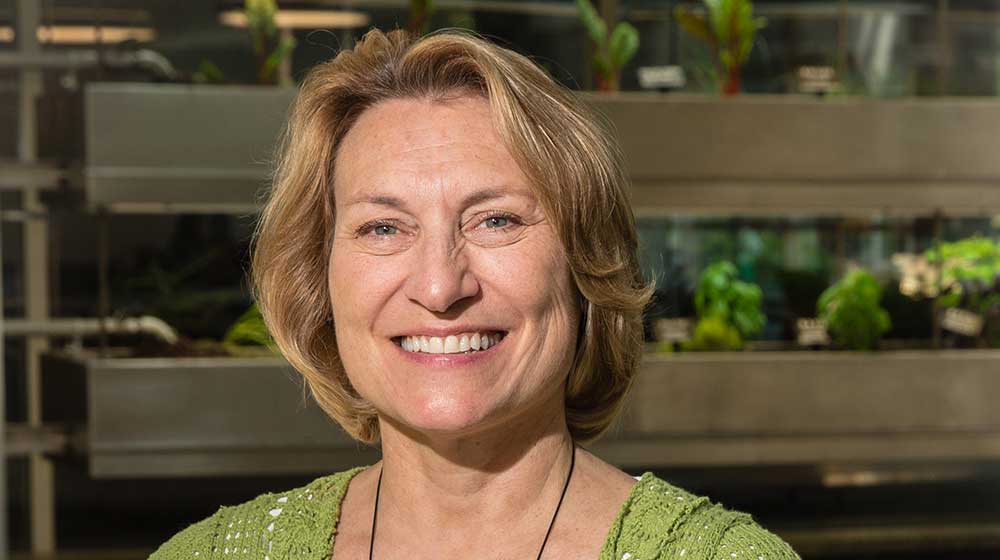Understanding the Pope’s encyclical

“It’s not just a letter saying there’s a problem going on here,” Loyola’s Nancy Tuchman, PhD, says about the Pope’s encyclical. “It’s a directive. It’s telling us we are responsible and we need to act—now.”
Pope Francis didn’t mince any words this summer in his encyclical on the environment.
“The Earth, our home, is beginning to look more and more like an immense pile of filth,” Francis wrote in his open letter to the world, a 184-page document meant to spur environmental action among Catholics and non-Catholics alike.
It’s a message that resonates with Loyola’s Nancy Tuchman, PhD, founding director of the University’s Institute of Environmental Sustainability.
“He tells it like it is, and he’s calling us all to action,” she said. “He says we have to move immediately, and it’s in the hands of the developed countries that have exploited the planet and consumed resources without concern for the environment or the poor.”
As a Jesuit, Catholic university, Loyola is committed to protecting the Earth and preserving its natural resources. In fact, it’s been recognized as one of the greenest universities in the nation. But it can do even more, Tuchman said.
“We are so poised to take off because of all the groundwork we’ve laid here,” she said. “We have such a strong foundation in justice and ethics and caring for the poor, and when you pair that with our sustainability efforts, we really have an amazing opportunity to go even further.”
Here, Tuchman talks about the Pope’s message, what it means for Loyola, and why inaction isn’t really an option when it comes to climate change.
What’s your main takeaway from the Pope’s encyclical?
It’s not just a letter saying there’s a problem going on here. It’s a directive. It’s telling us we are responsible and we need to act—now. We’ve been given all the information we need to know what’s happening to the environment. We’ve been given the tools, the technologies, and the knowledge to fix the problem. At this point, the only thing that’s stopping us is will.
What does his message mean for Loyola?
I think it will shine a light on what we’re doing already, but it will also help us expand our efforts and reach. We hosted a conference on climate change this spring, for example, that was attended by nearly a dozen Jesuit universities. One of the outcomes is that we’d like to develop a common environmental statement that all Jesuit universities can embrace. And I think the encyclical can help all of us come together and speak as a unified voice.
In addition to leading the Catholic Church, Pope Francis also has a background in science. How does that help him with this cause?
It gives him credibility because the evidence on climate change is based on science and is very measurable. So the fact that he can look at the data himself and evaluate it gives him tremendous credibility. But beyond that, he’s a very moral and ethical human being who isn’t afraid to get in the trenches with the people. He’s a good man who’s trustworthy—and he’s got scientific experience. He’s got all the goods.
And finally, what do you say to those who don’t believe in climate change?
Every single natural system on the planet is in decline, and you can’t deny that. And the longer we wait to do something about it, the harder it will be to maintain the kind of lifestyles we’re used to having. The longer we hold on to our consumption levels, the less likely our children—much less our grandchildren—will enjoy the lifestyles we’ve enjoyed.
